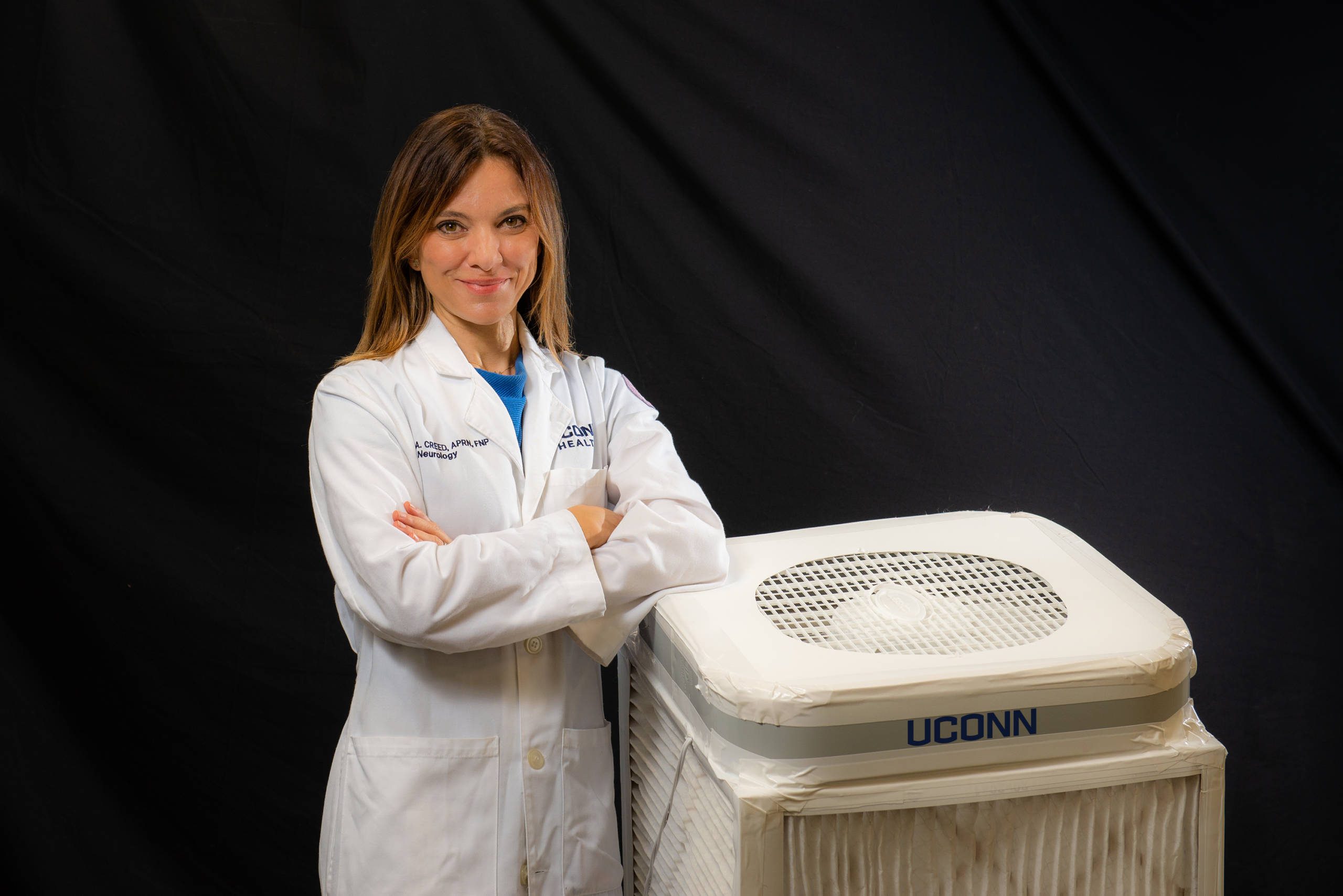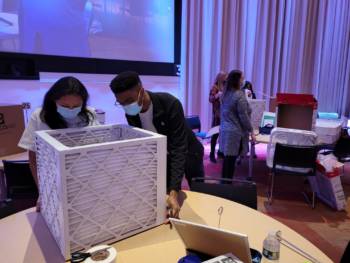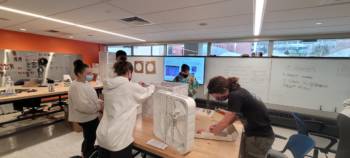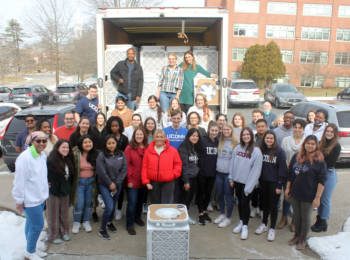UConn Indoor Air Quality Initiative, Funded Through Cryptocurrency, Works to Protect Schools from Spread of COVID-19
4 min read

COVID-19 cases may be falling, but the virus is still a very real concern for many parents sending their children back to school. UConn researchers are working to ease those worries by building do-it-yourself air purifiers to improve health in schools and other crowded settings. The Indoor Air Quality Initiative, which has already made an impact in Connecticut, is growing, thanks to a generous donation.
 The initiative has received a $300,000 grant, funded through cryptocurrency, from Balvi, an investment and direct giving fund established by Vitalik Buterin, the co-creator of Ethereum. Ethereum is a technology for building computer applications and organizations, holding assets, transacting, and communicating without being controlled by a central authority. Balvi was established for the purpose of deploying funds quickly to high-value COVID-19 projects that traditional institutional or commercial funding sources tend to overlook.
The initiative has received a $300,000 grant, funded through cryptocurrency, from Balvi, an investment and direct giving fund established by Vitalik Buterin, the co-creator of Ethereum. Ethereum is a technology for building computer applications and organizations, holding assets, transacting, and communicating without being controlled by a central authority. Balvi was established for the purpose of deploying funds quickly to high-value COVID-19 projects that traditional institutional or commercial funding sources tend to overlook.
“Improving the quality of indoor air is a key tool for dealing with covid and future pandemics without any disruption to normal life,” says Buterin. “We are excited to support grassroots initiatives to improve air quality in schools and other public venues.”
The donation will allow UConn to expand the project’s reach and add to the more than 400 purifiers already in schools, libraries, shelters, and other locations throughout the state.
 “These funds will help tremendously as our students and our faculty work to provide crucial low-cost, highly effective air filters to local communities,” said Kazem Kazerounian, dean of the UConn School of Engineering. “COVID-19 is here to stay, and this collaboration between UConn Engineering and UConn Health will help pave the way for a healthy year for our state.”
“These funds will help tremendously as our students and our faculty work to provide crucial low-cost, highly effective air filters to local communities,” said Kazem Kazerounian, dean of the UConn School of Engineering. “COVID-19 is here to stay, and this collaboration between UConn Engineering and UConn Health will help pave the way for a healthy year for our state.”
“The $300,000 donation for our efforts is an outstanding show of support for the importance of our work in mitigating the spread of infectious disease using simple, cost-effective, and easily available materials,” explains UConn Health MS Center Nurse Practitioner Marina A. Creed, who spearheaded the initiative with the help of colleague Sarah Laskowski of The Jackson Laboratory. “My hope is that we can help make schools one of the safest places in the community, and by extension, better protect my immunocompromised patients.”
The boxes, named Corsi-Rosenthal Boxes after creators Dr. Richard Corsi and Jim Rosenthal, remove 90% of virus-carrying aerosols from the air. They are also effective against dust and allergens and provide filtration capabilities that are comparable to expensive portable HEPA filters. Assembly takes about 30 minutes and requires $60 worth of supplies including a box fan, high-quality air filters, cardboard, and duct tape.

“This is a nurse-led initiative that has an incredible impact on our communities,” says Deborah Chyun, dean of the UConn School of Nursing. “Alumna Marina Creed has actively engaged our School of Nursing students in the Indoor Air Quality Initiative, showing them how patient care extends beyond the hospital setting and connects us with local communities. This generous donation has arrived when mask mandates are less prevalent, making air filtration increasingly more important.”
“UConn’s cross-campus initiative once again shows the real-life, collective power of our University and its people making an impact upon our local communities,” said Dr. Bruce T. Liang, dean of UConn School of Medicine and interim CEO of UConn Health. “We are so proud of UConn Health’s APRN Marina Creed rallying the entire UConn community together and the countless efforts of UConn health professional staff and students keeping up the COVID-19 fight inside the community.”
The researchers are also looking beyond the pandemic. The project aims to test the effectiveness of the purifiers in different settings, with the eventual goal of helping organizations across the globe use the technology to reduce air pollution in urban areas with high levels of indoor pollution.
There is also an educational component to the project, at the University level and in younger grades. Using state-of-the-art MODULAIR-PM air quality monitors from QuantAQ, Inc. for classrooms, the team will partner with local school districts to evaluate the effectiveness of DIY air cleaners in K-12 classrooms, strengthen outreach efforts through community event and creation of STEM lesson plans, as well as raising awareness for the importance of indoor air quality through our efforts”
“This is a hands-on public health intervention that can be made for kids, by kids, through STEM lessons that our team is creating which can take place in a variety of classrooms,” says Creed.The Indoor Air Quality Initiative is led by Creed, Associate Professor in Chemical and Biomolecular Engineering Dr. Kristina Wagstrom, and Director of Undergraduate Nursing Programs Michelle Cole. It is organized by UConn Health and its Comprehensive Multiple Sclerosis Center, with the UConn School of Nursing, School of Engineering, School of Medicine, the Department of Public Health Sciences, and the Connecticut Area Health Education Center Network.
